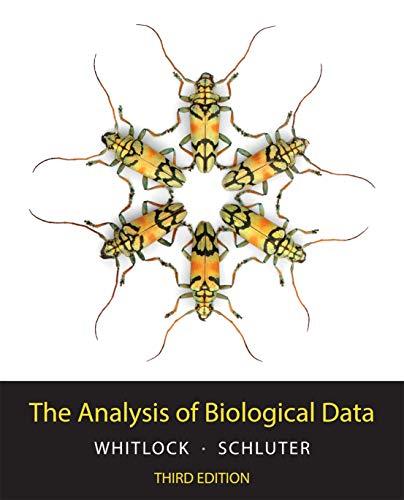When asked an embarrassing question in a surveysuch as whether the respondent has ever shopliftedindividuals may be
Question:
When asked an embarrassing question in a survey—such as whether the respondent has ever shoplifted—individuals may be reluctant to answer truthfully. However, answers might be more truthful if the survey incorporates a random component, such as a coin toss, that prevents the questioner from determining whether any given individual is guilty (Warner 1965). For example, consider a survey of a population in which 20% of individuals really have shoplifted at least once. The survey asks every participating individual to begin by flipping a fair coin twice. If the result of the first toss is heads, then the individual is instructed to answer honestly the question “Did the second toss also yield heads?” If the first coin toss yields tails, however, the respondent is instructed to answer honestly the question “Have you ever shoplifted?”
a. Draw a probability tree that describes all possible outcomes of such a survey and their probabilities.
b. What is the overall probability that a randomly sampled respondent answers yes?
Step by Step Answer:

The Analysis Of Biological Data
ISBN: 9781319226237
3rd Edition
Authors: Michael C. Whitlock, Dolph Schluter





